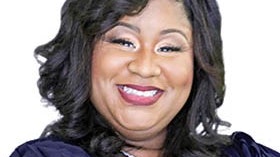Homepage
•
Learning Library
•
Blog
•
Aleigha Henderson-Rosser: A leader in finding what's possible
Expand breadcrumbs
Expand breadcrumbs
- Learning Library
- Blog
- Aleigha Henderson-Rosser: A leader in finding what's possible
- Homepage
- •
- Learning Library
- •
- Blog
- •
- Aleigha Henderson-Rosser: A leader in finding what's possible
Aleigha Henderson-Rosser: A leader in finding what's possible
By Tim Douglas
January 1, 2015








